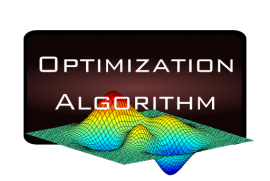- Fecha(s): 11/04/2017
- Lugar: Sala Seminarios (Edificio Torretamarit), Universidad MIguel Hernández de Elche. Se grabará.
- Ponente: El-Ghazali Talbi (University of Lille 1).

Abstract During the last years, interest on hybrid metaheuristics has risen considerably in the field of optimization and machine learning. The best results found for many optimization problems in science and industry are obtained by hybrid optimization algorithms. Combinations of optimization tools such as metaheuristics, mathematical programming, constraint programming and machine learning, have provided very…
- Fecha(s): 06/04/2017
- Lugar: Sala de seminarios, Edificio Torretamarit, Universidad Miguel Hernández (Campus de Elche). Se grabará.
- Ponente: José Manuel Giménez-Gómez (Universitat Rovira i Virgili)

Abstract An effective climate agreement is urgently required, yet conflict between parties prevails over cooperation. Thanks to advances in science it is now possible to quantify the global carbon budget, the amount of available cumulative CO2 emissions before crossing the 2oC threshold (Meinshausen et al., 2009). Countries carbon claims, however, exceed this. Historically such situations have been tackled…
- Fecha(s): 03/04/2017
- Lugar: Seminario del Departamento de Economía Aplicada
- Ponente: Ricardo Salvatore

Resumen El trabajo examina la evolución de la “desigualdad nutricional” a largo plazo en Argentina. Definimos la “desigualdad nutricional” como las diferencias inter-personales al acceso a la nutrición y la salud en primera infancia. Este ensayo presenta los resultados de varias muestras de población (reclutas y presos) de diversas regiones de la Argentina. La pregunta…
- Fecha(s): 30/03/2017
- Lugar: Seminario del Departamento de Métodos Cuantitativos para la Economía y Empresa, UMU. Retransmisión en directo.
- Ponente: Montserrat Viladrich Grau. Universidad de Lleida

Abstract Much biodiversity is found in farm land. However, there is usually a trade-off between farm land productivity and sustainability of natural resources. Biodiversity conservation in agricultural land usually requires to carry on a series of conservationist practices that are costly. Therefore, farmer’s participation in conservationist programs requires economic incentives. Our goal is to identify…
- Fecha(s): 24/03/2017
- Lugar: Sala de Seminarios (Edificio Torretamarit), Universidad Miguel Hernández de Elche. Se grabará.
- Ponente: Michel Théra (University of Limoges, France)

Abstract In the current presentation, I intend to extend the developments in Kruger, Ngai & Théra, SIAM J. Optim. 20(6), 3280-3296 (2010) and, more precisely, to characterize, in the Banach space setting, the stability of the local and global error bound property of inequalities determined by proper lower semicontinuous under data perturbations. I will propose…
- Fecha(s): 23/03/2017
- Lugar: Seminario del Departamento de Métodos Cuantitativos para la Economía y Empresa, UMU. Retransmisión en directo y grabación.
- Ponente: Mª José Gutierrez. Universidad del País Vasco

Abstract: By using robustness methods we design HCRs that explicitly include scientific uncertainty. Under scientific uncertainty –when the perceived model can be generated by a nearby operating model– robust HCRs are designed assuming that the (inferred) operating model is more persistent than the perceived model. As a result, a robust HCR has a steeper ratio…
- Fecha(s): 16/03/2017
- Lugar: Sala de seminarios, Edificio Torretamarit, Universidad Miguel Hernández (Campus de Elche). Se grabará.
- Ponente: Carlos Escudero (Universidad Autónoma de Madrid)

Abstract Un problema clásico en el campo de la matemática financiera es el encontrar carteras de inversiones óptimas en el caso de que varias inversiones sean posibles. Si el inversor tiene información privilegiada, al menos dos cosas mejoran. La primera, obviamente, sus probabilidades de obtener beneficio. La segunda, el perfil de las matemáticas necesarias para…
- Fecha(s): 10/03/2017
- Lugar: Seminario de Fundamentos del Análisis Económico, segunda planta, Facultad de Economía y Empresa (B/202)
- Ponente: Luís C. Corchón

Abstract We provide a model of dynamic duopoly in which firms take into account the financial constraints of all firms. The study of the equilibria of our dynamic game leads to the concept of Bankruptcy-Free outputs (BF) in which no firm can drive another firm to bankruptcy without becoming bankrupt itself. We show that, in…
- Fecha(s): 24/02/2017
- Lugar: Seminario de Fundamentos del Análisis Económico, 2ª planta, Facultad de Economía y Empresa
- Ponente: Asier Minondo. Universidad de Deusto.

Abstract: Neoclassical models of international trade do not grant firms any role in shaping countries’ export specialization. However, the evidence shows that in many countries few firms dominate sectoral exports. In this paper we propose an easy-to-implement methodology to determine the contribution of country-level variables, fundamental comparative advantage, and firm-level variables, granular comparative advantage, to…
- Fecha(s): 16/02/2017
- Lugar: Seminario del Departamento de Métodos Cuantitativos para la Economía y Empresa, UMU. Retransmisión en directo.
- Ponente: Guiomar Martín-Herrán. Universidad de Valladolid.

Abstract: Despite the fact that the use of sporadic advertising schedules is well established in both the advertising literature and market place, the marketing channel literature that focuses on vertical interactions has consistently prescribed continuous advertising strategies over time. This paper investigates, in a bilateral monopoly context a situation in which a manufacturer and a…











